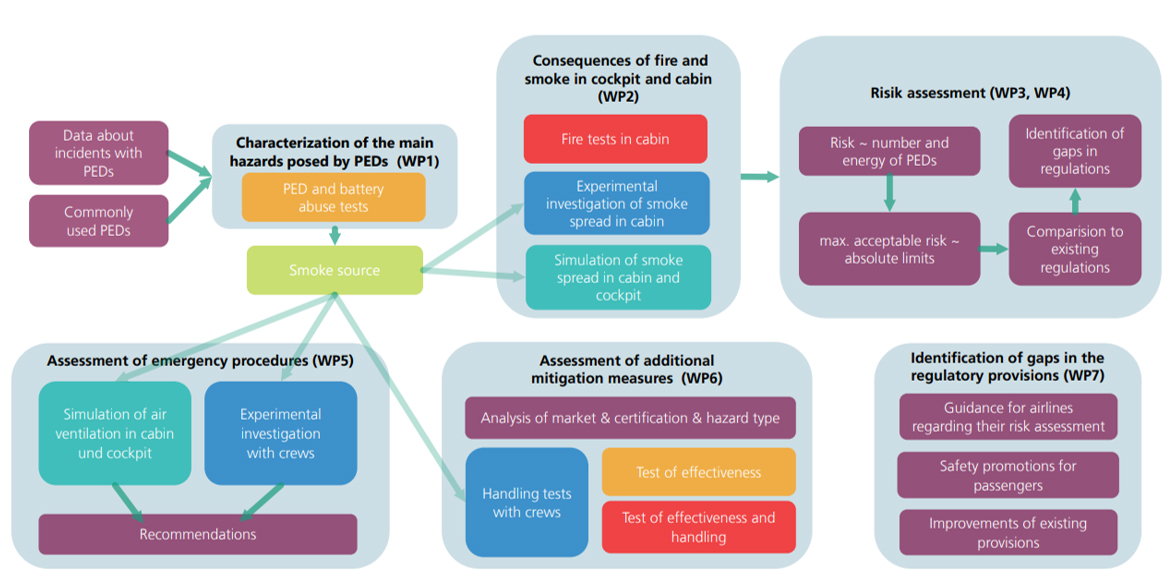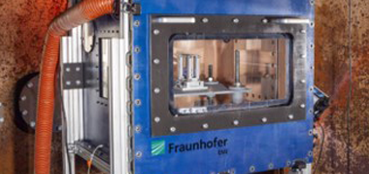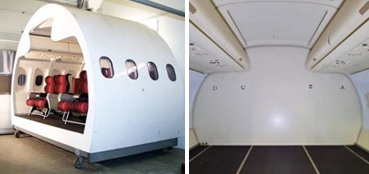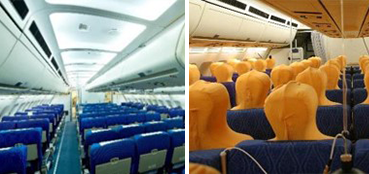The LOKI-PED research project is led by EASA and managed by an external consortium with Fraunhofer-Gesellschaft (FHG) as the project coordinator. The project is related to the risks of smoke and fire in the cabin, caused by Portable Electronic Devices (PEDs).
The research objectives and expected outcome
The amount of lithium metal and ion batteries transported by air is constantly growing. Lithium batteries, regardless of whether they are contained in equipment or not, are one of the main causes of incidents reported in the cabin. The main risks are fire and smoke, which can lead to catastrophic events.
Objectives of the research project:
- Fully characterise the hazards related to the carriage of lithium batteries and PEDs by passengers in the aircraft cabin.
- Determine the extent of the consequences of fire and smoke caused by an event on the safe conduct of the flight, using modelling and numerical simulation and involving operational safety experts.
- Assess the limits related to battery design and number of PEDs on board to maintain acceptable risk level(s) and determine the relationship between the risk and the increase/decrease of both battery energy and number through the experimental data available.
- Compare the scenarios assessed with the limits established by the applicable regulations to identify potential gaps and needs for change and justify the conclusions.
- Assess and evaluate current emergency procedures and identify potential improvements of the existing emergency procedures.
- Establish whether additional mitigating measures in relation to the hazard would need to be applied, determining whether the use of certain solutions may minimise or increase the risks and consequences and justifying whether manufacturing or testing standards should be developed by the appropriate entities.
- Identify gaps in the applicable regulatory provisions and the need to refine the guidance materials used by operators.
Required output and expected outcome:
- Provide experimental test evidence for the establishment of limits (power output and quantity) for the transport of PEDs and study the effects of an increase/decrease in the risks involved.
- Develop new and improve existing emergency procedures to cope with lithium batteries and PEDs transported in the cabin, thus rendering it a safer environment for both passengers and aircrew.
- Reduce the occurrences of safety events caused by lithium batteries and PEDs carried by passengers and aircrew by better understanding the causes, consequences, and patterns of lithium-battery thermal runaways in flight.
- Reduce the consequences of fire and smoke events by determining cabin and cockpit tolerances, identifying the consequences of failures in the aircraft systems, and identifying solutions both at aircraft and lithium-battery level.
- Support operators in assessing the risks associated with the transport of lithium batteries and PEDs in the cabin and identify the need for safety promotion for passengers.
- Fully characterise the hazards related to the carriage of lithium batteries and PEDs by passengers in the aircraft cabin.
Project Overview

Work packages (WP)
2023
WP1: Characterization of the main hazards posed by lithium batteries and PEDs carried by passengers and aircrew in the cabin
2024
WP2: Evaluation of the consequences of fire and smoke
WP3: Assessment of the limits related to the number of batteries and the battery power / energy
WP4: Comparison of the risk scenarios with the limits established by the applicable regulations
2025
WP5: Assessment of the Cabin emergency procedures.
WP6: Assessment of additional mitigation measures
WP7: Identification of gaps in the regulatory provisions
Tests and Facilities

PED and battery abuse
Battery Test Center, Fraunhofer EMI

Cabin Fire
A320 Mockup, Fraunhofer EMI & IBP

Smoke spread
Flight Test Facility, Fraunhofer IBP
Project Workshops
Within the LOKI-PED project, workshops with airline crews will be conducted to analyse and improve existing procedures dealing with the thermal runaway of the Lithium-Ion-Batteries in Portable Electronic Devices. Furthermore, existing mitigation measures will be tested and assessed in a real cabin environment regarding their handling and effectiveness.
Fraunhofer-Gesellschaft will work together with manufacturers of additional mitigation measures against PEDs under thermal runaway. Fraunhofer-Gesellschaft will assess the handling and effectiveness of these measures at the Battery Test Facility of Fraunhofer EMI and an A320 mock-up as well as the Flight Test Facility of Fraunhofer IBP.
Events
-
Contractors’ project webpage
-
Expected workshops
- Workshop 1: Introduction of concepts — Cabin crews and cabin crew trainer testing different emergency procedures and mitigation measures in a real cabin environment
- Workshop 2: Manufacturers of additional mitigation measures providing information about conducted tests and explaining their perspective on a future certification as well as supporting tests and the crew workshop
- Workshop 3: Risk accessors of airlines sharing actual issues and benefitting from the knowledge gained within the project
- Workshop 4: Final dissemination event — Sharing of results, discussion on possible procedure
-
Presentation of LOKI-PED at international events
- World Safety and Operations Conference (WSOC) in Hanoi Vietnam (01–03/10/2024)
- FAA-EASA International Aviation Safety Conference in Cologne, Germany (11–13/06/2024)
- AIAA AVIATION Forum in Las Vegas (29/07–02/08/2024)
- World Safety and Operations Conference (WSOC) in Marrakech, Morocco (01–03/10/2024)
Research Project details
 This project will be funded from the European Union's Horizon Europe
This project will be funded from the European Union's Horizon Europe
research and innovation programme.
At Frauenhofer Gesellschaft
Project manager: Simon Holz, simon.holz [at] emi.fraunhofer.de (simon[dot]holz[at]emi[dot]fraunhofer[dot]de)
Technical lead: Victor Norrefeld, victor.norrefeldt [at] ibp.fraunhofer.de (victor[dot]norrefeldt[at]ibp[dot]fraunhofer[dot]de)
Consortium members
Airbus
At EASA
Project manager: Simone Schwerdorf, simone.schwerdorf [at] easa.europa.eu
Technical lead: Lia Calleja Barcena, lia.calleja-barcena [at] easa.europa.eu
Technical expert: Enzo Canari, enzo.canari [at] easa.europa.eu


